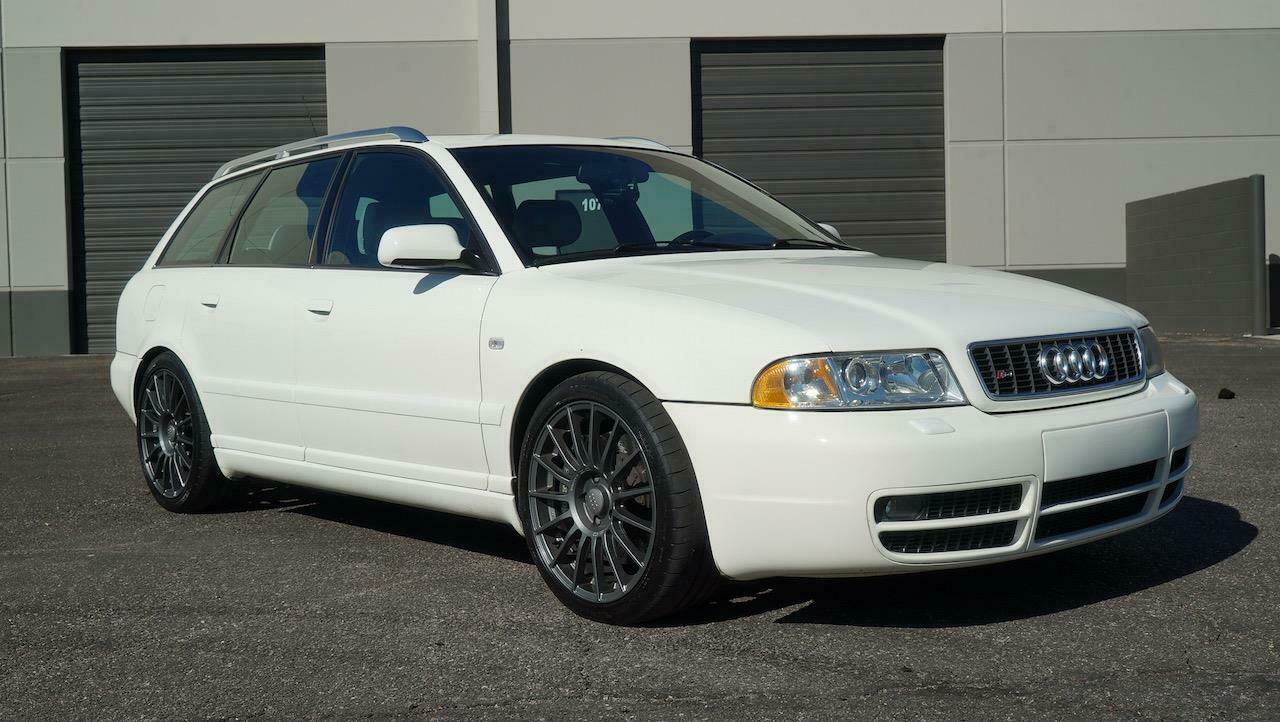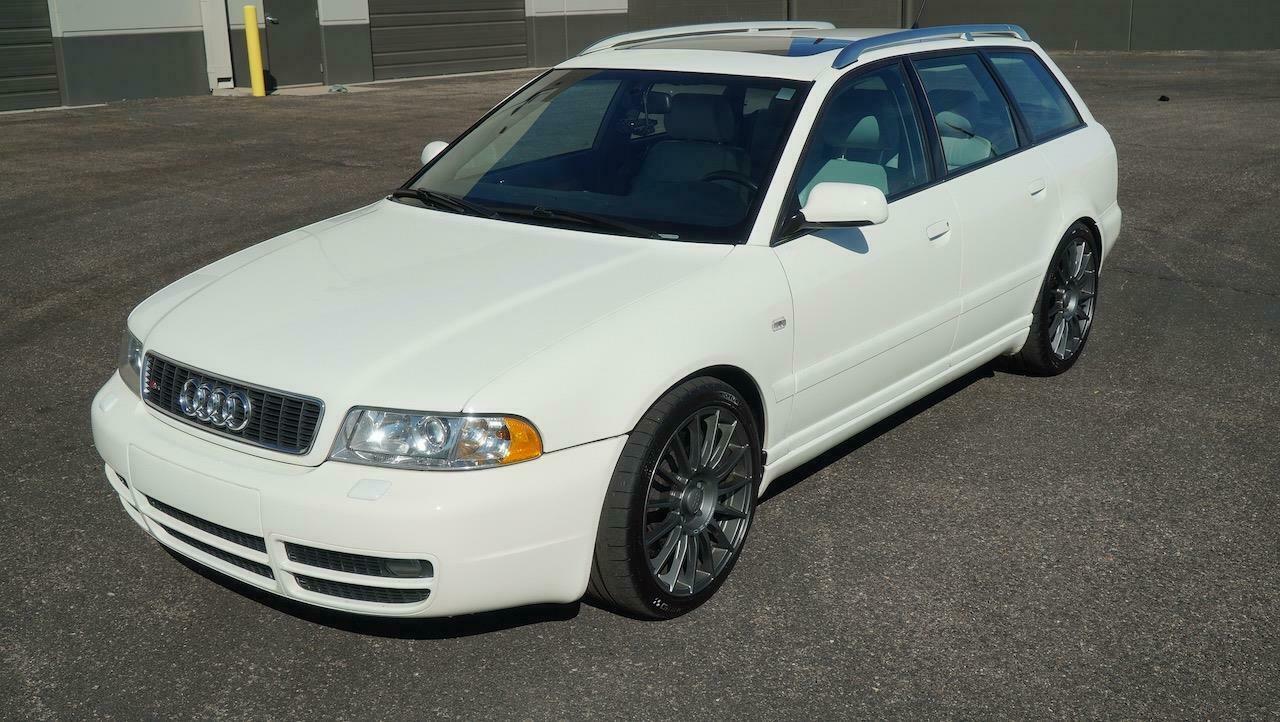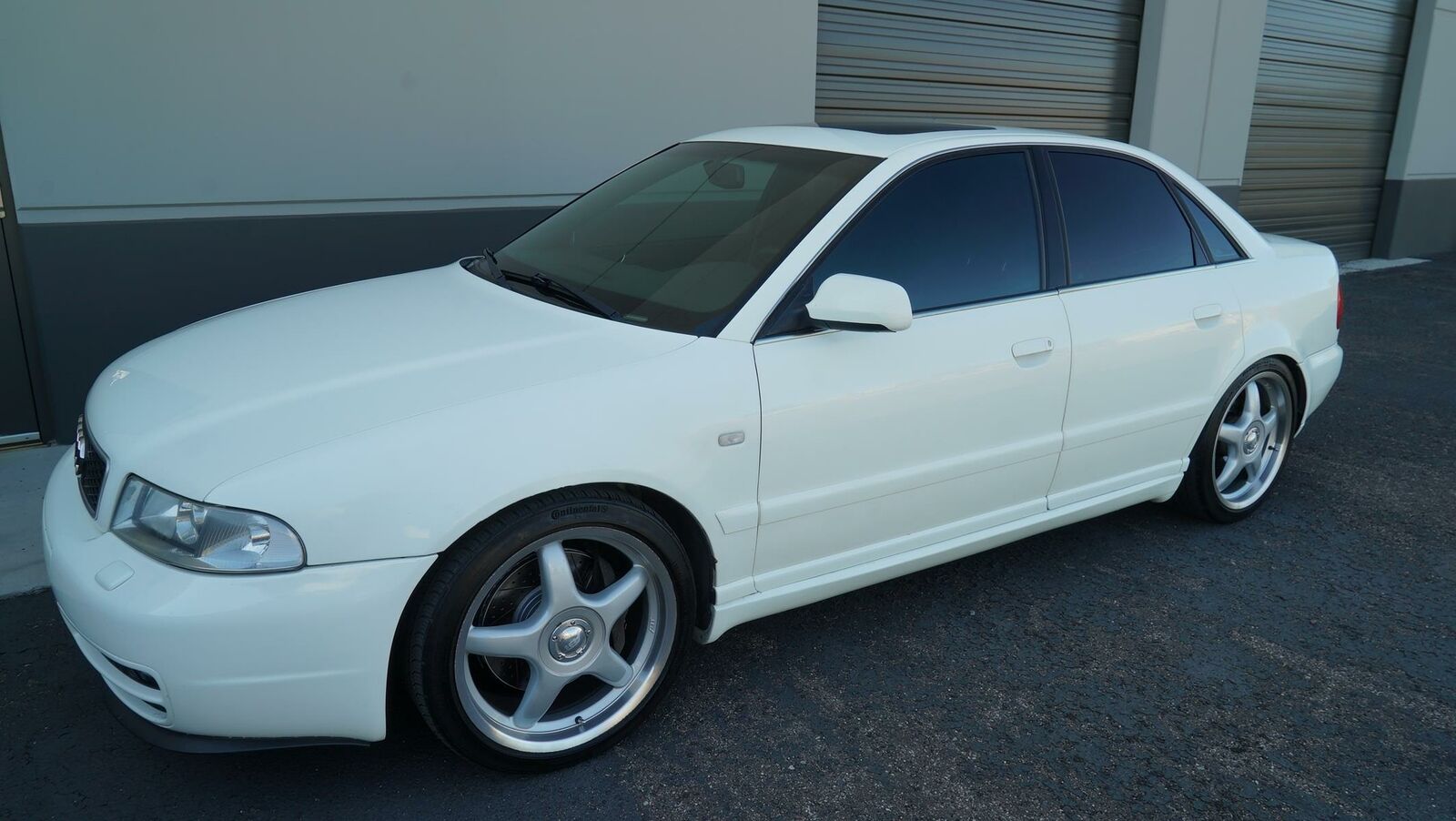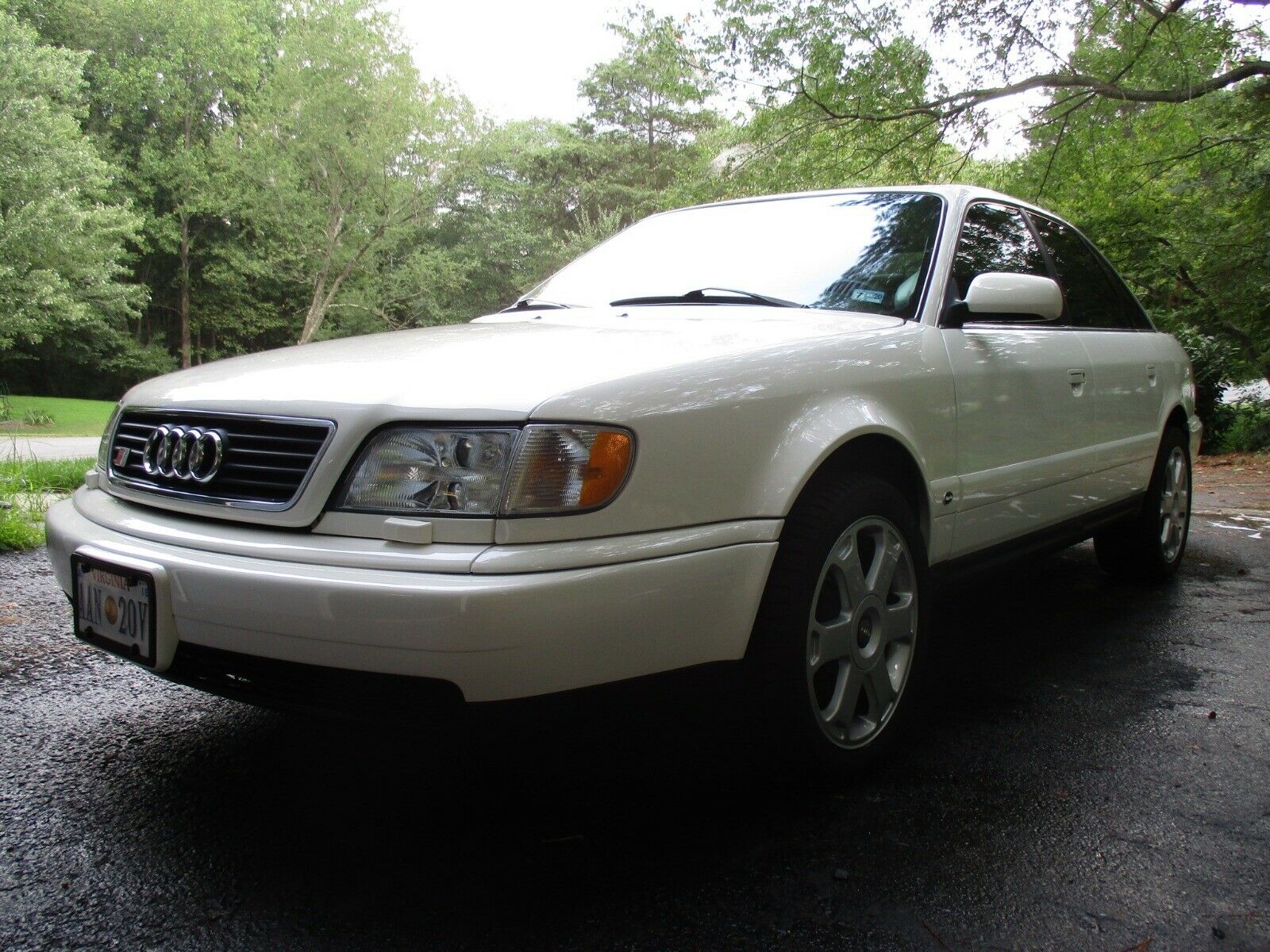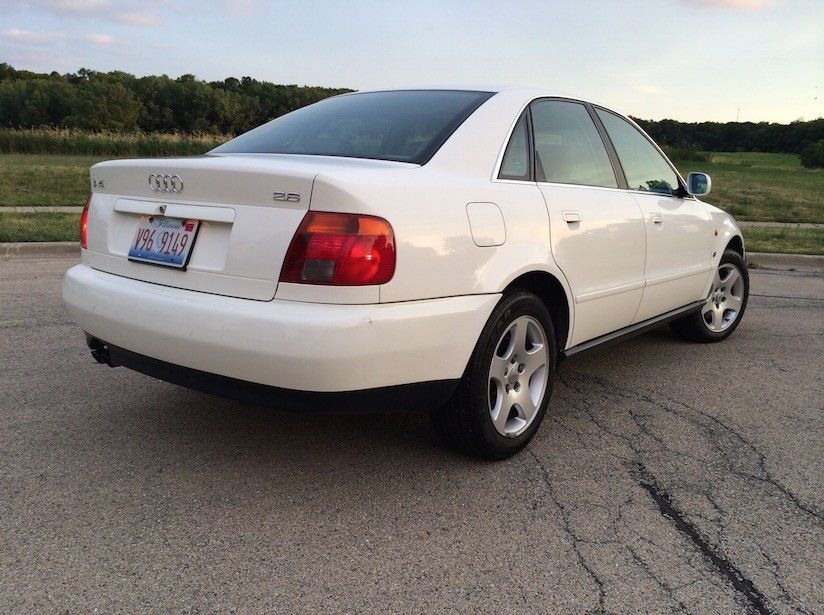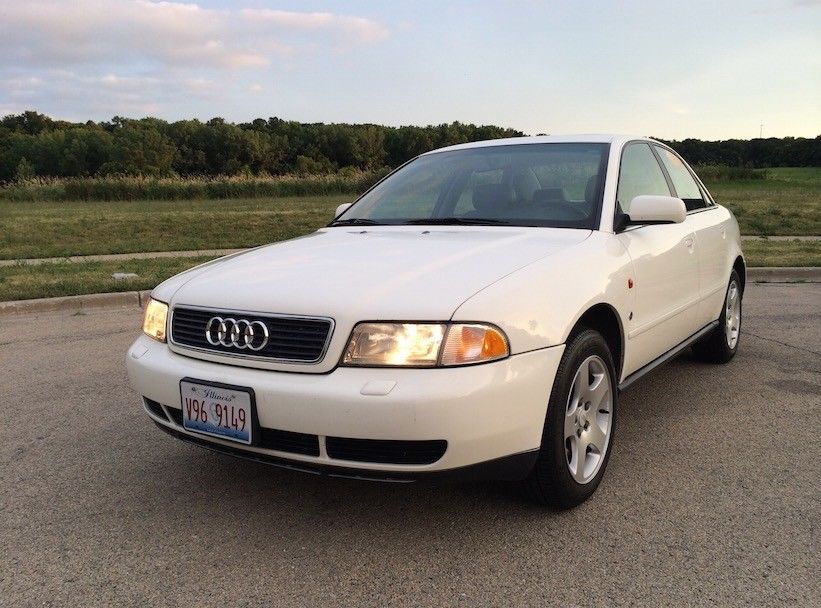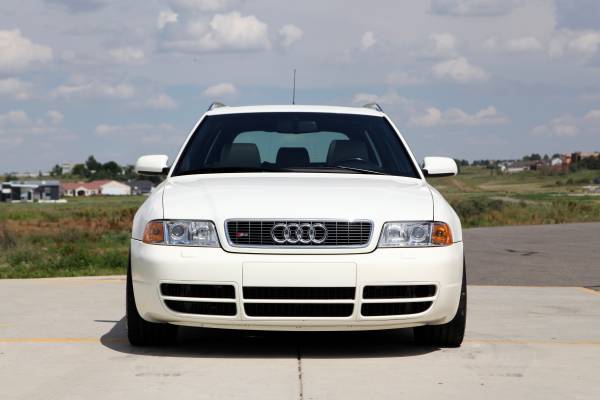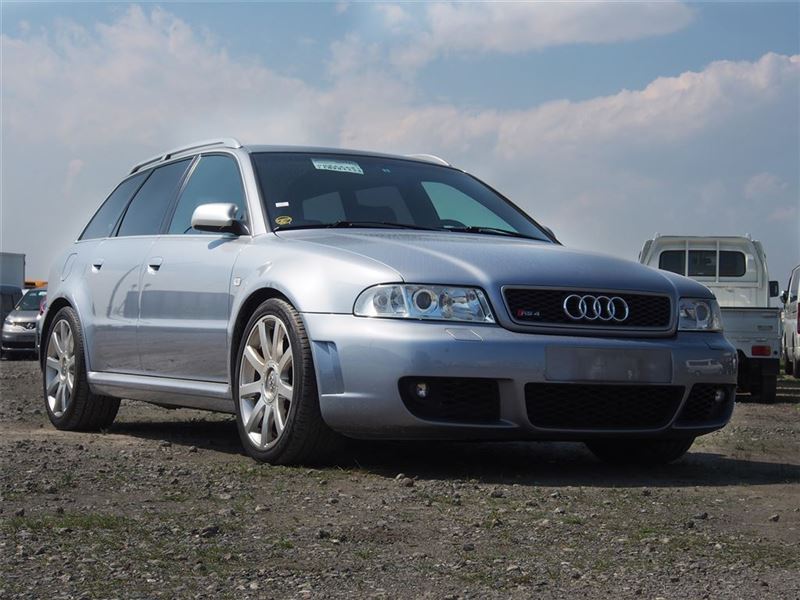In just a few years, Audi went from only one S model with very limited production imported in the C4 S6 to three models. Top of the range was the S8, but it shared its running gear and sonorous V8 in a slightly detuned state with the new C5 S6. For Audi enthusiasts, though, big news came with the launch of the new S4.
It was unrelated to the first S4 because of Audi’s renaming strategy in 1995. That meant that the new S4 was based on the small chassis B5, and U.S. enthusiasts finally got a taste of Audi’s M3 competitor. Performance came in the form of a new 2.7 twin-turbocharged V6 30V and was mated to either a 5-speed Tiptronic transmission like its bigger siblings or a 6-speed manual. Like other B5s, the S4 made use of the 4th generation of quattro technology driving all four wheels. This utilized a Torsen center differential with open front and rear differentials, both of which employed the ABS sensors to electronically ‘lock up’ the slipping wheels when a speed differentiation was detected. Like other S models, some light revisions to the bodywork and more pronounced exhaust were present, along with polished mirrors and 17″ Avus-design wheels. Most notable was the large front bumper cover with 6 gaping grill covers which hid the twin intercoolers for the motor. With 250 horsepower and 295 lb.ft of torque, you had an all-weather 155 mph warrior. And, it was available as an Avant:
